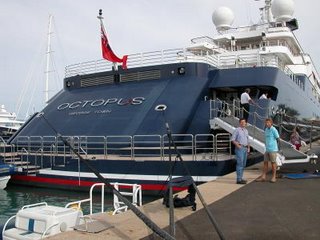Congress increased dependence on foreign oil this week
And they rewarded anti-US elected dictator Hugo Chavez of Venezuela.
Only sophisticated people fall do dumb stuff like this. Congress took away a tax break from our 5 US oil producing companies. But they rewarded Hugo Chavez by leaving the 6 per cent break for Citgo, which he owns.
If you want to increase dependence on foreign oil you punish domestic suppliers and reward foreign suppliers. Congress did just that in Renewable Energy and Energy Conservation Tax Act of 2008 on a vote of 236 to 182.
Michelle Malkin reported it. CNS News has the details.
House Republicans criticized energy legislation passed late Wednesday, saying that it would raise taxes on the oil industry but give tax breaks to Venezuelan President Hugo Chavez and the state-run oil company CITGO.
... But Boehner said the "worst" parts of the bill are the provisions on foreign oil. "It actually carves out tax breaks for Venezuelan dictator Hugo Chavez - courtesy of American taxpayers," said Boehner. "This is unacceptable, and the Democratic leadership is irresponsible for bringing the bill to the House floor."
"I am disappointed that the Majority voted down a Republican proposal to eliminate the tax relief for Hugo Chavez and give it to those who need it most: middle-class American families," he said. "The largest tax increase in American history is on the horizon, and House Republicans are committed to stopping it."
Investors Business Daily:
It goes to show that Congress is more willing to empower dictators than to get serious about America's energy supply.
On the surface, H.R. 5321 is awful all by itself. Passing 236-182 last week, the bill scrapped the tax deduction routinely given to the major integrated oil companies — Exxon, Chevron, BP, Shell and ConocoPhillips — that helps them explore, extract, refine and market the energy that drives our economy.
This will make it $18 billion more costly for those companies to produce oil. To the House this is a good thing, because large oil companies with large market capitalizations already earn too much.
... Don't worry, the $18 billion will still be spent. It'll just be turned into pork for so-called alternatives and renewables that thus far have failed to produce energy in a free market.
Congress made this even worse by ensuring that its discrimination against the big oils would benefit Citgo, which happens to be owned by those same companies' worst tormentor abroad — the brutal leftist dictatorship of Venezuela's Hugo Chavez.
Under this bill, the dictator's oil subsidiary keeps its 6% deduction for U.S. domestic manufacturing — the one the American oil companies lose — because Citgo, technically, buys from Chavez.


